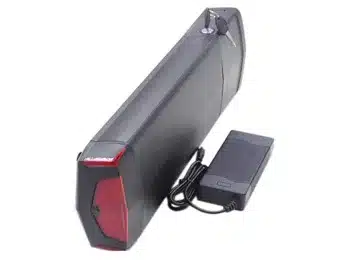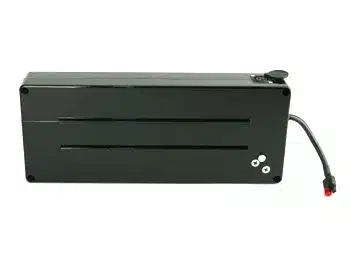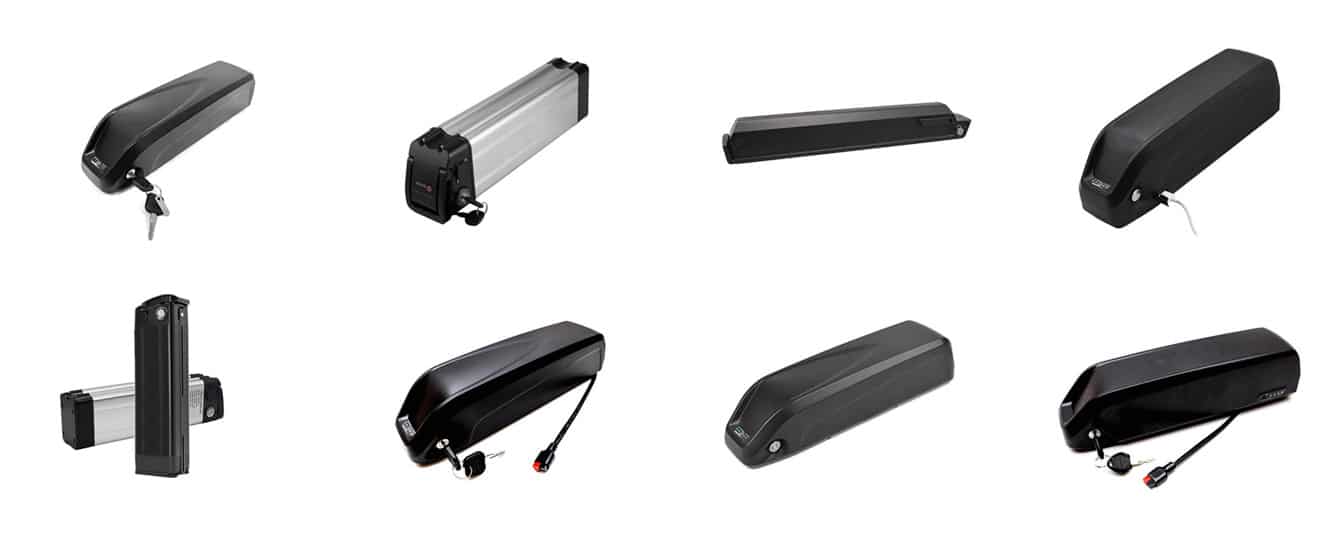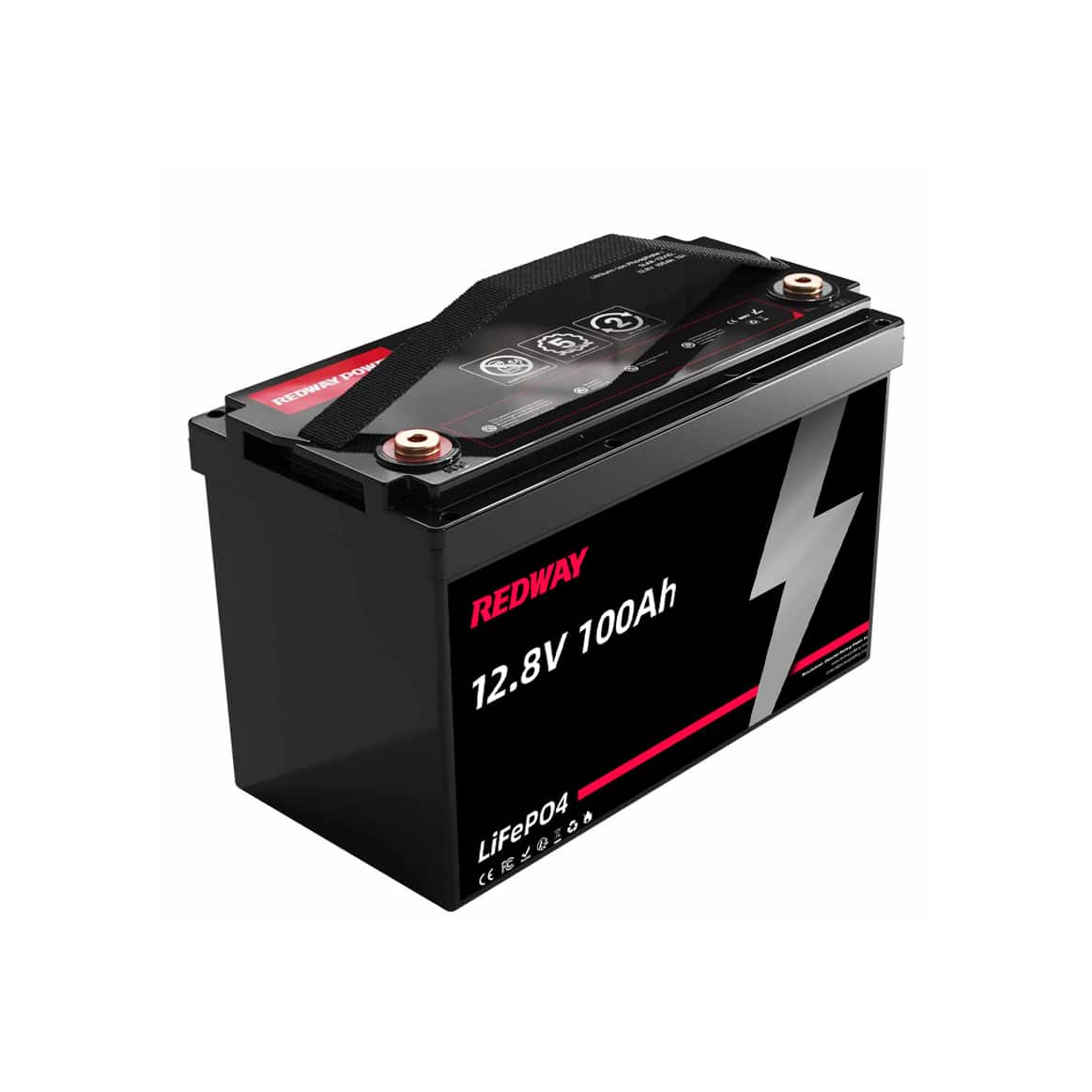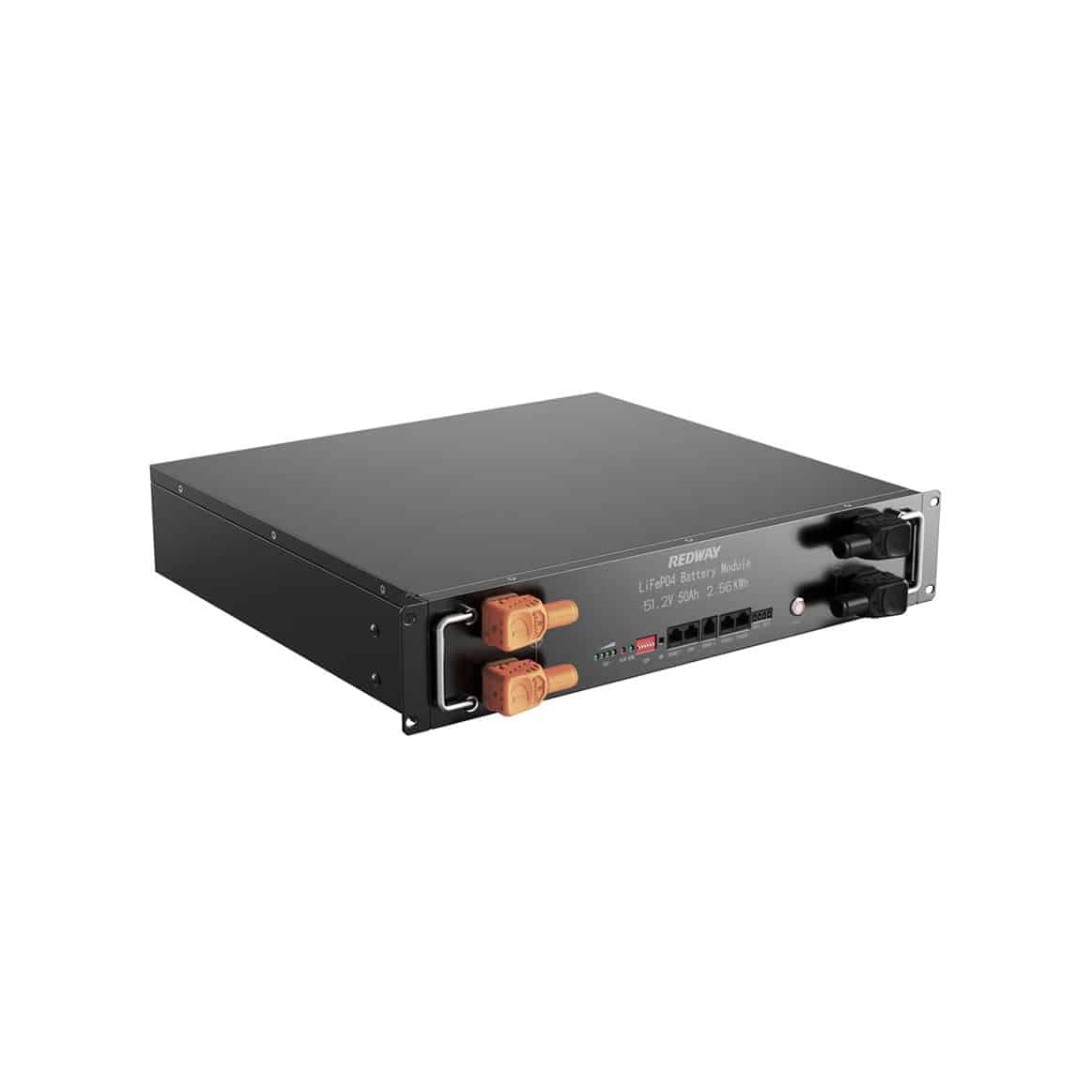
Wholesale LiFePO4 eBike Batteries, Just in One Place - The Ultimate Solutions
Check Our Catalogue for E-Bike Li-ion Batteries
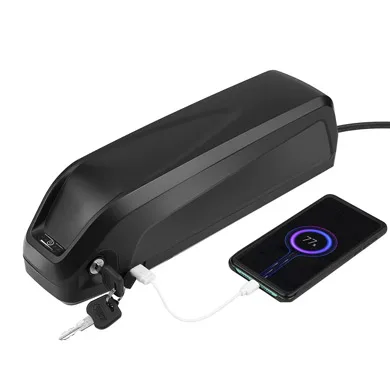
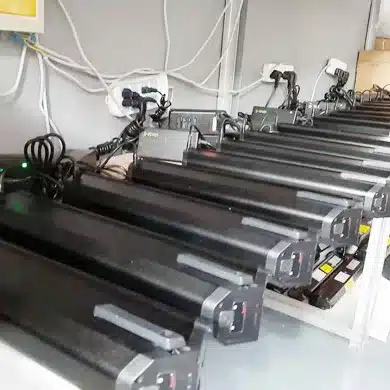

Why Choose Us?
Stay in the know!
Subscribe to our newsletter and stay up to date with the latest news and resources.
Lithium eBike Batteries Manufacturer, Factory, Supplier In China

Wholesale LiFePO4 eBike Batteries, Just in One Place - The Ultimate Solutions
Choose Your Lithium eBike Battery
Why choose Redway Battery?
- The highest quality batteries designed based on China quality standards, offering high performance, high durability, and excellent cycle life.
- Lead-acid batteries can be replaced with lithium iron phosphate, with options for custom battery packs and energy solutions.
- With state-of-the-art manufacturing equipment, we are able to deliver batteries in a timely manner to our customers.
- With outstanding after-sale support and the best battery replacement warranty, the company provides excellent customer service from enquiry to delivery.
- Strong OEM/ODM production ability and delivery to global customers directly
- Redway is a socially responsible company with community donations and green initiatives.

Certificates From Lithium Battery Manufacturer And Factory
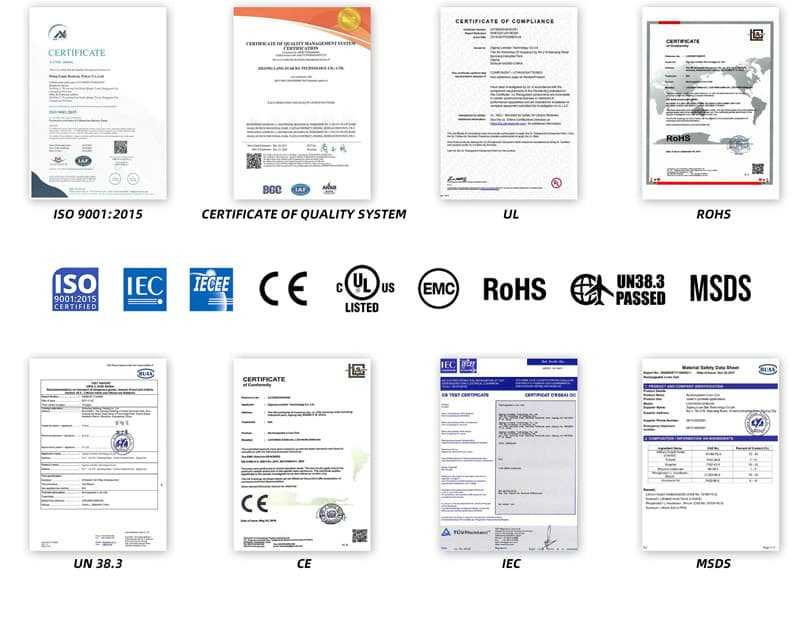
Specification
Please let us know the operating voltage requirements; and if any additional functions are needed, such as 10 second discharge and 10 second charge.
Quantity
A minimum order quantity (MOQ) is not required. However, a maximum quantity will help you get a better price. The more quantity you order, the lower the price you can get.
Application
Our engineers can provide you with more suggestions under your budget if you let us know your application or details about your project.
The Ultimate Guide to Lithium eBike Batteries
1. What Are Lithium eBike Batteries?
Lithium eBike batteries are rechargeable energy storage devices specifically designed for electric bikes. They utilize lithium-ion technology, known for its high energy density, lightweight nature, and long cycle life. These batteries power the electric motor, providing assistance to the rider, and are favored for their efficiency, faster charging times, and overall superior performance compared to traditional battery types.
What types of lithium batteries are used in eBikes?
eBikes commonly use lithium-ion batteries, particularly lithium nickel manganese cobalt (NMC) and lithium iron phosphate (LiFePO4) variants. These batteries offer high energy density, long cycle life, and lightweight design, making them ideal for electric bikes.
How do lithium batteries compare to lead-acid batteries for eBikes?
Lithium batteries outperform lead-acid batteries in several ways: they are lighter, have higher energy density, longer lifespans, and faster charging times. While lead-acid batteries are cheaper upfront, their shorter life and weight make lithium batteries the preferred choice for eBikes.
What are the key components of a lithium eBike battery?
Key components of a lithium eBike battery include individual lithium cells, a battery management system (BMS) for safety and performance, a protective casing, and electrical connectors. The BMS monitors charge levels, temperature, and overall battery health, ensuring safe operation.
2. What Are the Benefits of Lithium Batteries for eBikes?
Lithium batteries offer several benefits for eBikes, including lightweight design, high energy density, longer lifespans, and faster charging times. They also provide consistent power output and are more efficient than traditional lead-acid batteries.
How do lithium batteries impact eBike range and performance?
Lithium batteries significantly enhance eBike range and performance by providing more energy in a smaller package. Their efficient power delivery enables longer rides and better acceleration, making them ideal for various terrains and riding conditions.What is the lifespan of lithium eBike batteries?
The lifespan of lithium eBike batteries typically ranges from 3 to 7 years, depending on usage, charging habits, and maintenance. Regularly following best practices can help extend their longevity and overall performance.How do charging times compare to other battery types?
Lithium eBike batteries charge significantly faster than lead-acid batteries. While lithium batteries usually take 3 to 5 hours to fully charge, lead-acid batteries can take 8 to 12 hours, making lithium the more convenient option for users.
3. How Do You Choose the Right Lithium Battery for Your eBike?
To choose the right lithium battery for your eBike, consider factors such as voltage, capacity, size, and weight. Additionally, evaluate your riding habits, terrain, and power requirements to ensure optimal performance and range.
What voltage and capacity should you look for in an eBike battery?
Typically, eBike batteries range from 36V to 48V, with higher voltages providing more power and speed. Capacity is measured in amp-hours (Ah); look for a battery with at least 10-15Ah for adequate range, depending on your riding style and distance.How do you determine the right battery size for your riding needs?
To determine the right battery size, consider your average riding distance, terrain, and assist level. Calculate the required capacity based on your typical ride duration and speed, ensuring the battery can support your eBike’s performance without frequent recharging.What are the differences between internal and external lithium batteries?
Internal lithium batteries are built into the eBike frame, offering a sleek design and protection from environmental factors. External batteries are mounted on racks or in bags, making them easier to replace and charge but may be more exposed to damage. Consider your preference for aesthetics and convenience when choosing.
4. What Are the Safety Considerations for Lithium eBike Batteries?
Safety considerations for lithium eBike batteries include preventing overheating, avoiding punctures or physical damage, and using the correct charger. Regular inspections for signs of wear and ensuring proper ventilation during charging are also essential for safe operation.
How do battery management systems (BMS) protect lithium batteries?
Battery management systems (BMS) protect lithium batteries by monitoring and managing various parameters such as voltage, current, and temperature. They prevent overcharging, deep discharging, and short circuits, ensuring safe operation and extending the battery’s lifespan.What are the proper storage and handling practices for lithium batteries?
Proper storage practices for lithium batteries include keeping them in a cool, dry place, ideally at around 50% charge. Avoid exposure to extreme temperatures and direct sunlight. Always handle batteries with care, using appropriate protective gear if needed.How do lithium batteries perform in extreme temperatures?
Lithium batteries typically perform best at moderate temperatures (20-25°C). In extreme cold, their capacity and efficiency can decrease, leading to reduced range. In high heat, the risk of overheating and damage increases. It’s crucial to monitor temperatures and store batteries within recommended ranges for optimal performance.
5. How Do You Maintain Lithium eBike Batteries?
To maintain lithium eBike batteries, regularly check for physical damage, keep terminals clean, and ensure proper charging practices. Avoid deep discharges and extreme temperatures to prolong battery life and performance.
What are the best charging practices for lithium eBike batteries?
Best charging practices include using the manufacturer-recommended charger, charging the battery at room temperature, and avoiding overcharging. Aim to recharge when the battery is around 20-30% and store it at approximately 50% charge if not in use for extended periods.How should lithium batteries be stored when not in use?
When not in use, lithium batteries should be stored in a cool, dry place at around 50% charge. Avoid exposing them to extreme temperatures and ensure they are kept away from direct sunlight and moisture.What signs indicate a lithium battery needs replacement?
Signs that a lithium battery needs replacement include significantly reduced range, difficulty holding a charge, physical swelling or damage, and unusual heat during charging. If these issues arise, it’s best to consult a professional or consider a replacement.
6. What Is the Environmental Impact of Lithium eBike Batteries?
The environmental impact of lithium eBike batteries includes resource extraction, energy-intensive production processes, and disposal challenges. However, their long lifespan and efficiency can mitigate some negative effects when managed properly.
How recyclable are lithium eBike batteries?
Lithium eBike batteries are recyclable, but the recycling infrastructure is still developing. Many components can be recovered, including lithium, cobalt, and nickel. Proper recycling can reduce environmental impact and conserve valuable resources.What is the carbon footprint of lithium batteries compared to other options?
Lithium batteries generally have a lower carbon footprint than lead-acid batteries over their lifecycle due to their longer lifespan and higher energy efficiency. While production is energy-intensive, their use in clean transportation helps offset emissions.How do lithium batteries contribute to sustainable transportation?
Lithium batteries contribute to sustainable transportation by powering electric vehicles and eBikes, reducing reliance on fossil fuels. Their efficiency and potential for renewable energy integration promote cleaner air and lower greenhouse gas emissions, supporting a transition to more sustainable mobility.
7. What Are the Latest Innovations in Lithium eBike Battery Technology?
Latest innovations in lithium eBike battery technology include advancements in energy density, faster charging capabilities, and improved battery management systems. Manufacturers are focusing on enhancing safety features and integrating smart technologies for better user experience.
How are manufacturers improving energy density in lithium batteries?
Manufacturers are improving energy density through the development of new battery chemistries, such as solid-state batteries, and optimizing the materials used in cell construction. Techniques like increasing the surface area of electrodes also contribute to higher energy storage in smaller packages.What new features are being integrated into lithium eBike batteries?
New features in lithium eBike batteries include smartphone connectivity for real-time monitoring, built-in GPS for tracking, and advanced battery management systems that optimize charging and discharge cycles. Some models also offer modular designs for easy upgrades.How might future developments enhance lithium battery performance in eBikes?
Future developments may enhance lithium battery performance through innovations like solid-state technology, which promises higher energy density and safety. Improvements in recycling processes and integration with renewable energy sources could further reduce environmental impact and enhance overall efficiency.
8. What Are the Cost Considerations for Lithium eBike Batteries?
Cost considerations for lithium eBike batteries include the initial purchase price, potential long-term savings from lower maintenance and replacement costs, and the overall lifespan of the battery. These factors help assess the total investment.
How do upfront costs compare to long-term savings with lithium batteries?
While lithium batteries may have higher upfront costs compared to lead-acid options, they often lead to long-term savings due to their longer lifespan, reduced maintenance needs, and higher efficiency. This makes them a more cost-effective choice over time.What factors influence the price of lithium eBike batteries?
Factors influencing the price of lithium eBike batteries include battery capacity (measured in Ah), energy density, brand reputation, technology used, and manufacturing processes. Additionally, market demand and raw material costs can also affect pricing.How do warranty options affect the overall value of lithium batteries?
Warranty options significantly affect the overall value of lithium batteries by providing assurance of quality and performance. A longer warranty period can indicate manufacturer confidence and reduce potential costs for replacements, enhancing the battery’s overall value.
The market for ebike battery manufacturers is highly competitive, with leading companies like CATL, Samsung SDI, and Bosch dominating the industry. These ebike battery manufacturers focus on producing high-quality lithium-ion and LiFePO4 batteries that offer long life, safety, and reliable performance. Among these, the LiFePO4 battery manufacturer segment is gaining attention due to the chemistry’s enhanced safety and longer cycle life compared to traditional lithium-ion batteries.
A reputable LiFePO4 battery manufacturer provides batteries that are ideal for e-bikes, balancing safety and durability. While LiFePO4 batteries tend to be heavier, their stability and longevity make them a preferred choice for many riders. The collaboration between top ebike battery manufacturers and LiFePO4 battery manufacturers is driving innovation, ensuring that e-bike users benefit from safer, longer-lasting power sources. This synergy is crucial for the growing e-bike market worldwide.

